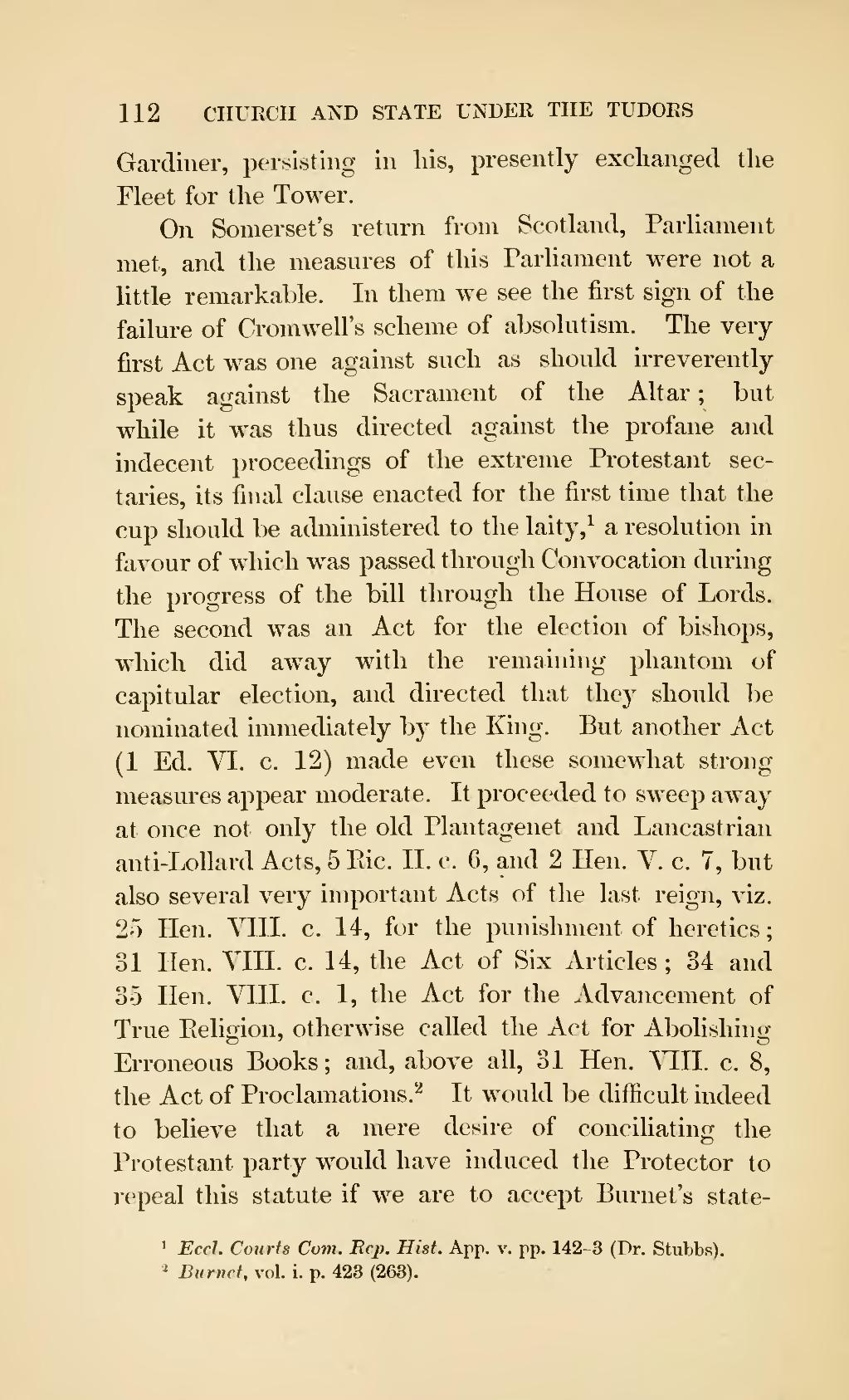Gardiner, persisting in his, presently exchanged the Fleet for the Tower.
On Somerset's return from Scotland, Parliament met, and the measures of this Parliament were not a little remarkable. In them we see the first sign of the failure of Cromwell's scheme of absolutism. The very first Act was one against such as should irreverently speak against the Sacrament of the Altar; but while it was thus directed against the profane and indecent proceedings of the extreme Protestant sectaries, its final clause enacted for the first time that the cup should be administered to the laity,[1] a resolution in favour of which was passed through Convocation during the progress of the bill through the House of Lords. The second was an Act for the election of bishops, which did away with the remaining phantom of capitular election, and directed that they should be nominated immediately by the King. But another Act (1 Ed. VI. c. 12) made even these somewhat strong measures appear moderate. It proceeded to sweep away at once not only the old Plantagenet and Lancastrian anti-Lollard Acts, 5 Ric. II. c. 6, and 2 Hen. V. c. 7, but also several very important Acts of the last reign, viz. 25 Hen. VIII. c. 14, for the punishment of heretics; 31 Hen. VIII. c. 14, the Act of Six Articles; 34 and 35 Hen. VIII. c. 1, the Act for the Advancement of True Religion, otherwise called the Act for Abolishing Erroneous Books; and, above all, 31 Hen, VIII. c. 8, the Act of Proclamations.[2] It would be difficult indeed to believe that a mere desire of conciliating the Protestant party would have induced the Protector to repeal this statute if we are to accept Burnet's state-
- ↑ Eccl. Courts Com. Rep. Hist. App. v. pp. 142-3 (Dr. Stubbs).
- ↑ Burnet, vol. i. p. 423 (263).
